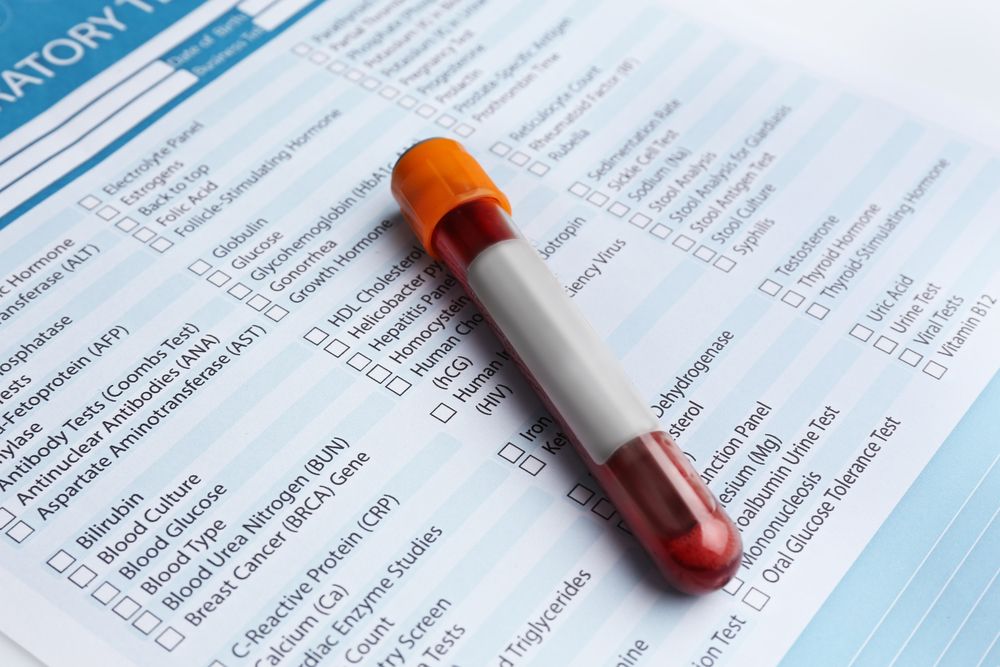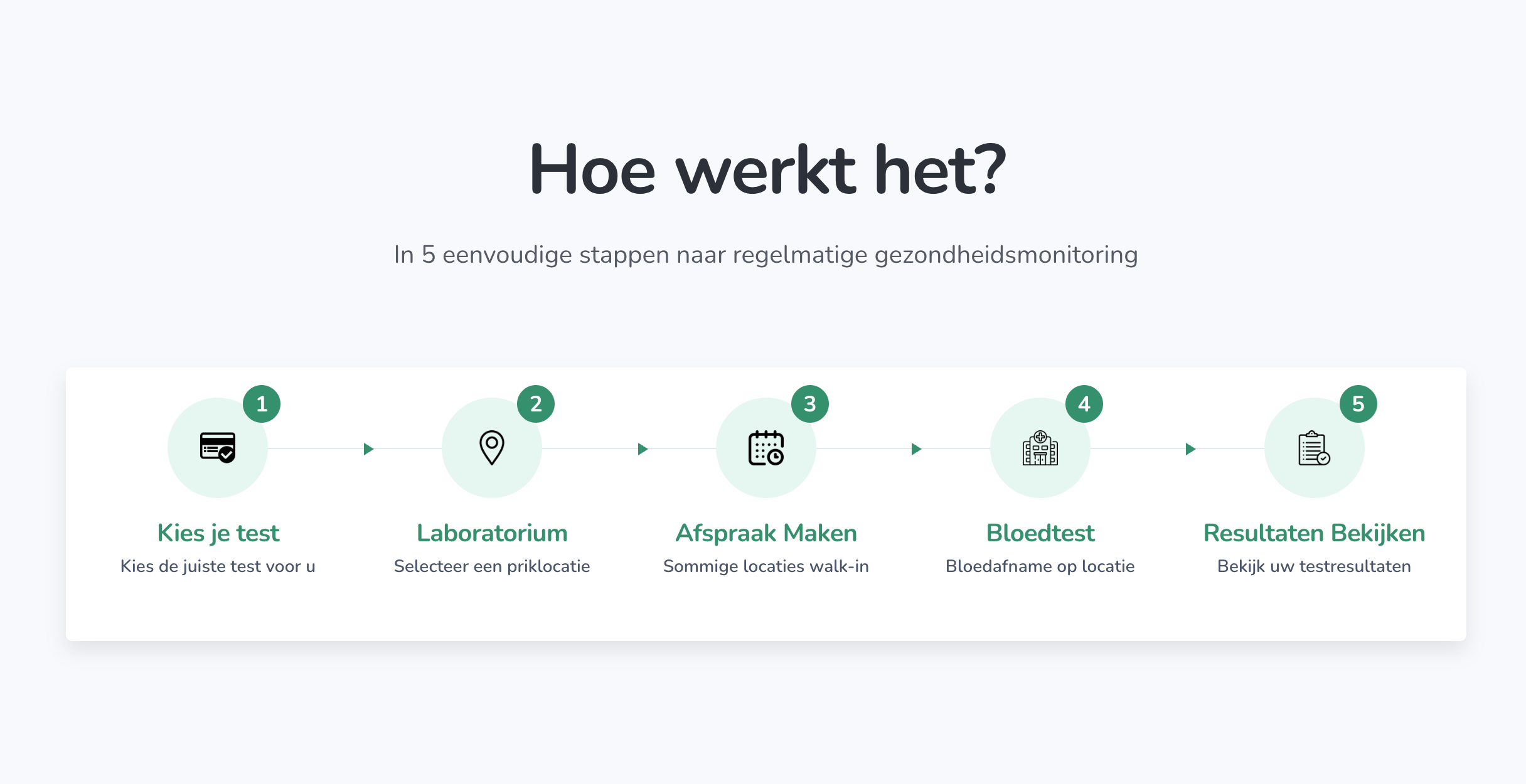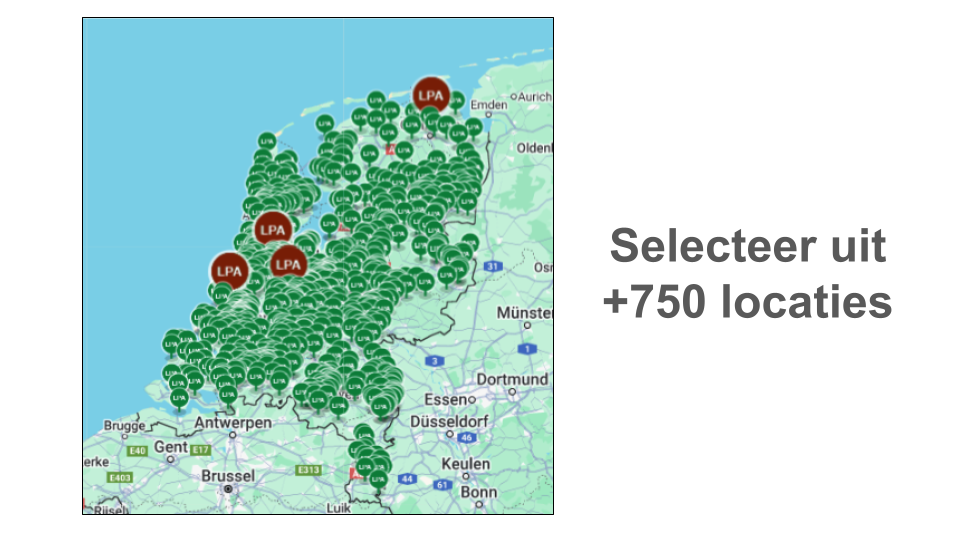Blood group blood test - What is it?
Red blood cells (erythrocytes) have chemical structures on the outside. One of those structures are antigens. The presence of antigens determine your blood group. With the help of this antigen system, the body can also distinguish whether a blood cell is foreign or endogenous. In the first case, a rejection reaction occurs. If you want to be a donor or undergo a blood transfusion, it is it is useful to know your blood group. In addition, it is important for women who want to become pregnant to know their blood group, in connection with possible rejection reactions in the uterus.The blood group system that we use today was described in 1900. This is the ABO blood group system. Eight blood groups are distinguished: blood group A, blood group B, blood group AB and blood group O. All these can be positive or negative. This is explained below. In the Netherlands, blood group O is the most common and AB the least. In addition, most people are rhesus D positive. That is why you can safely give blood group O negative to most people.
What do we determine in the blood group test?
Blood: ABO blood group
Someone with blood group A, that is, antigen A on the red blood cells, has antibodies (antibodies) against antigen B. This also applies vice versa. Someone with blood group B has antibodies against antigen A. Someone with blood group O produces antibodies against antigens A and B in the event of a transfusion. The red blood cell itself has no antibodies against A or B. We therefore regard blood group O as a universal donor. You can give this to anyone regardless of their blood type to minimize the chance of rejection. Someone with blood group AB has no antibodies against A or B. So blood group AB is the universal recipient. This person can receive all blood types without a high risk of rejection. However, in the Netherlands only 3% have blood group AB. By the way, you largely inherit your blood groups from your parents.Blood: Rhesus factor D
Most people are Rhesus (D) positive. This means that they do not produce antibodies against this rhesus factor. Someone who is Rhesus factor D negative can produce antibodies against Rhesus factor D after coming into contact with someone who is Rhesus D positive. This rarely happens. In men, actually only after transfusion. In women, this can occur during pregnancy with a rhesus-positive child. Please note, even if you have had a miscarriage as a woman, your body may have already formed antibodies against the rhesus factor. Normally no rejection takes place the first time. However, during a subsequent pregnancy the antibodies are fully developed and can therefore reject the blood of the unborn child.Fasting test?
You do not need to be fasting for this blood group test.When to choose this blood group test?
Choose the blood group blood test when:- You treatment want to know your blood group and rhesus factor
- You want to donate blood and therefore undergo a blood transfusion.
- You want to undergo IVF treatment
- You are pregnant and you want to know your blood group and rhesus factor.
When to take a blood group test?
It is sufficient to perform this test once in your life. Your blood group and rhesus factor do not change. The antibodies do. As a rhesus D negative (16 % of the Dutch population) do produce antibodies during pregnancy or a transfusion. It is important for pregnant women to have their blood group tested at the beginning of pregnancy and in week 27.How accurate is the Bloedgroep blood test?
The accuracy of the test for Bloedgroep is conducted through ISO-certified laboratories. The accuracy of a test method is expressed in terms of specificity and sensitivity. However, the most important aspect is that the results are interpreted and accepted among general practitioners and hospitals. This is the case with our venous samples. Mutual acceptance may not always be present due to potentially reduced reliability with a capillary sample.
How long does it take to receive the results of a Bloedgroep blood test?
Most tests generally take 24-48 hours. Tests that go through an LC-MS method generally take longer, think about an average of 3-7 working days. Additionally, it also depends on the location. Some locations do the analysis themselves and others outsource it to another lab.
How do I interpret the results of a Bloedgroep blood test?
Interpreting the results of Bloedgroep is not always easy and should be seen in the broader picture, along with anamnesis and physical examination. In the doctor's advice section, the query in which you can already outline your complaints is taken into account, otherwise, the results are interpreted in conjunction with the other results. If necessary, the doctor can call to ask about physical abnormalities. You don't have to interpret the results yourself because there is always advice and explanation from the doctor.
What should I do if my results from a Bloedgroep blood test are abnormal?
If the results of the test for Bloedgroep are clinically significantly abnormal, the doctor will contact you by phone. If you are not reachable, you will receive an email. This includes advice and an explanation of the abnormal results and what you can do about them. If you need a prescription or referral, we can help with that.
How much does a Bloedgroep blood test cost? Is it covered by insurance?
The costs of Bloedgroep can be found on the product page. Depending on your insurance and additional packages, you may be reimbursed for these costs for Bloedgroep. For example, tests for IVF treatment are often reimbursed. After your order, you will receive an invoice that you can submit to your insurance.
How can I order a Bloedgroep blood test?
The ordering process is easy. You can add a Bloedgroep test or the tests you want to your shopping cart. In step two, you fill in your details and pay. Then you will receive an email confirmation and you can go to a collection location. After you have been there, you will receive the results of the Bloedgroep test in your Portal.
Is my data safe when I get a Bloedgroep blood test?
We are certified-ready according to the NEN 7510 and 7512 standards for secure data transfer in healthcare. The Portal is secured with two-factor authentication. Your data is also encrypted. We do not send the results of Bloedgroep to third parties without permission, not even to your general practitioner without your consent.
Do I need to visit a clinic for a Bloedgroep blood test, or can it be done remotely?
The blood test for Bloedgroep must take place at one of the collection locations we provide. At certain locations, it is possible for a phlebotomist to come to you. You can indicate this during checkout. An appointment will then be made as soon as possible to come to your home.
How do I book an appointment for Bloedgroep blood test?
You can easily make an appointment for Bloedgroep blood test after your order in your Portal. You can visit almost daily in all major cities in the Netherlands. In smaller cities, you can visit on certain days. At certain locations, it is also possible to visit on weekends.
Is a doctor's interpretation included in a Bloedgroep blood test?
An interpretation by a doctor or an explanation is included in the Bloedgroep test. The explanation takes into account the query that you can specify in your Portal after ordering.
How does a Bloedgroep blood test differ from over-the-counter tests?
For blood tests, we always use venous sampling. This is the gold standard for blood collection. Over-the-counter tests, such as a finger prick test, use the capillary route for blood collection. These do not always give the same results and the accuracy depends on how, where, and with which technique the collection is done. The advantage, of course, is that the test is easier and less painful to take.
What payment options are available for a Bloedgroep blood test?
You can always pay with iDeal and credit card (VISA, Mastercard, and Amex). This also includes Apple Pay. The phlebotomists at the collection location cannot accept cash payments.
Are the results of a Bloedgroep blood test shareable with my doctor?
The results of Labplusarts can be shared with your general practitioner at your request. However, you can also easily arrange this yourself by downloading the result in PDF format. Because we use comparable test methods as the general practitioner, the results are interchangeable and comparable so that comparisons can be made well.


